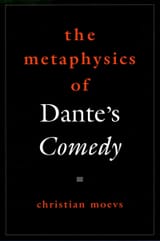Search Results
6/11/2025, 1:24:06 PM
>>24456299
Odd OP because the rest of the post slowly diverges from the original thesis and begins talking about unrelated things using extremely questionable evidence.
Some Pauline Epistles are doubted. Most aren't. They are placed in the first century. Hebrews, which most agree wasn't written by Paul, still dates to around his time and was almost certainly written by a follower. Other sources earlier than the controversy you mention are already quoting these letters.
You could probably better argue Arianism or subordinationism, but the text is consistent with the Trinity as well. There are indeed some similarities with Hinduism. Christians would say this is because all religions reach for truth and all truth, even partial truth, is a fruit of the same Logos, Christ.
For example:
...these principles are that (1) the world of space and time does not itself exist in space and time: it exists in Intellect (the Empyrean, pure conscious being); (2) matter, in medieval hylomorphism, is not something “material”: it is a principle of unintelligibility, of alienation from conscious being; (3) all finite form, that is, all creation, is a self-qualification of Intellect or Being, and only exists insofar as it participates in it; (4) Creator and creation are not two, since the latter has no existence independent of the former; but of course creator and creation are not the same; and (5) God, as the ultimate subject of all experience, cannot be an object of experience: to know God is to know oneself as God, or (if the expression seems troubling) as one “with” God or “in” God.
Let me spell out these principles at greater length. In medieval hylomorphism (the matter-form analysis of reality), pure Intellect (consciousness or awareness) is pure actuality, or form, or Being, or God: it is the self-subsistent principle that spawns or “contains” all finite being and experience. Intellect Being is what is, unqualified, self-subsistent, attributeless, dimensionless. It has no extension in space or time; rather, it projects space-time “within” itself, as, analogously, a dreaming intelligence projects a dream-world, or a mind gives being to a thought. The analogy holds in at least three respects: (1) like dreams or thoughts, created things are radically contingent, and dependent at every instant of their existence on what gives them being; (2)as there is nothing thoughts are “made of,” so there is nothing the world is “made of”: being is not a “something” to make things out of; and (3) dreams and thoughts have no existence apart from the intelligence in which they arise, but one cannot point to that intelligence because it is not a thing. In the same way, one cannot point to the Empyrean, the tenth heaven that the Comedy presents as the infinite intelligence/reality “within” which all things exist; remove it and the universe would instantly vanish.
Odd OP because the rest of the post slowly diverges from the original thesis and begins talking about unrelated things using extremely questionable evidence.
Some Pauline Epistles are doubted. Most aren't. They are placed in the first century. Hebrews, which most agree wasn't written by Paul, still dates to around his time and was almost certainly written by a follower. Other sources earlier than the controversy you mention are already quoting these letters.
You could probably better argue Arianism or subordinationism, but the text is consistent with the Trinity as well. There are indeed some similarities with Hinduism. Christians would say this is because all religions reach for truth and all truth, even partial truth, is a fruit of the same Logos, Christ.
For example:
...these principles are that (1) the world of space and time does not itself exist in space and time: it exists in Intellect (the Empyrean, pure conscious being); (2) matter, in medieval hylomorphism, is not something “material”: it is a principle of unintelligibility, of alienation from conscious being; (3) all finite form, that is, all creation, is a self-qualification of Intellect or Being, and only exists insofar as it participates in it; (4) Creator and creation are not two, since the latter has no existence independent of the former; but of course creator and creation are not the same; and (5) God, as the ultimate subject of all experience, cannot be an object of experience: to know God is to know oneself as God, or (if the expression seems troubling) as one “with” God or “in” God.
Let me spell out these principles at greater length. In medieval hylomorphism (the matter-form analysis of reality), pure Intellect (consciousness or awareness) is pure actuality, or form, or Being, or God: it is the self-subsistent principle that spawns or “contains” all finite being and experience. Intellect Being is what is, unqualified, self-subsistent, attributeless, dimensionless. It has no extension in space or time; rather, it projects space-time “within” itself, as, analogously, a dreaming intelligence projects a dream-world, or a mind gives being to a thought. The analogy holds in at least three respects: (1) like dreams or thoughts, created things are radically contingent, and dependent at every instant of their existence on what gives them being; (2)as there is nothing thoughts are “made of,” so there is nothing the world is “made of”: being is not a “something” to make things out of; and (3) dreams and thoughts have no existence apart from the intelligence in which they arise, but one cannot point to that intelligence because it is not a thing. In the same way, one cannot point to the Empyrean, the tenth heaven that the Comedy presents as the infinite intelligence/reality “within” which all things exist; remove it and the universe would instantly vanish.
Page 1
